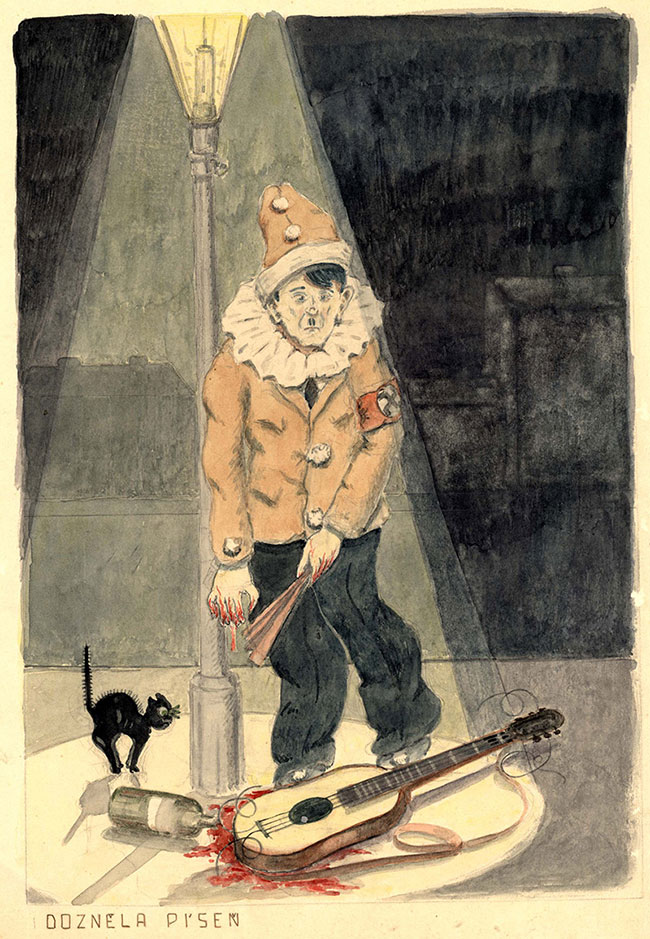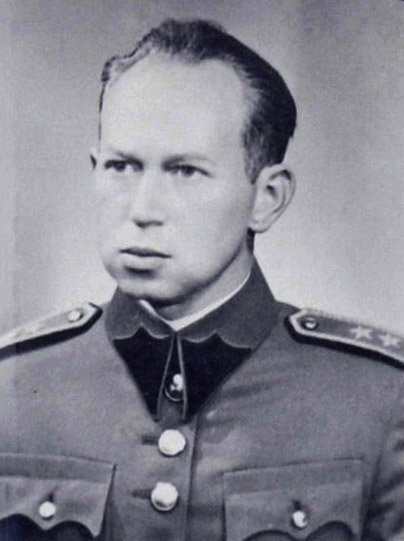
Watercolor and India ink on paper
30.2 x 22.5 cm
Collection of the Yad Vashem Art Museum, Jerusalem
Gift of Ida Fantlová, the artist's mother, courtesy of Ze'ev and Alisa Shek, Caesarea, Israel

Pavel Fantl studied medicine and took private art lessons. In 1935 he married and was inducted into the Czechoslovak Army as a medical officer. In 1939 he was dismissed for being a Jew, and the family moved to Kolin, Bohemia, where he was conscripted as a forced laborer. In June 1942 Fantl was transported to the Theresienstadt ghetto with his mother, Ida, his wife, Marie, and their son, Tomas. He directed the hospital for quarantined typhus patients and chaired the underground group of Jewish doctors. He used his position to relay information to the outside world, thus arousing the Germans’ suspicions. He was imprisoned in the Small Fortress, where he was interrogated and tortured. After being released to his living quarters, he smuggled out about eighty of his sketches. In October 1944 Fantl was deported to Auschwitz with his wife and by then seven-year-old son, who were murdered upon arrival; Fantl was sent to the Schwarzheide camp in Germany. He was shot to death on a death march in January 1945.